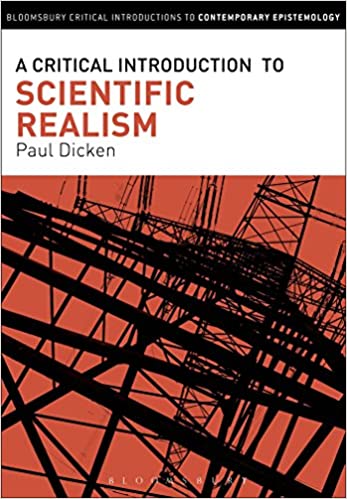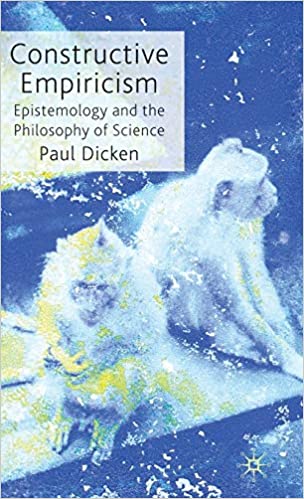
A Critical Introduction to Scientific Realism (Bloomsbury, 2016)
What are the reasons for believing scientific theories to be true? The contemporary debate around scientific realism exposes questions about the very nature of scientific knowledge. A Critical Introduction to Scientific Realism explores and advances the main topics of the debate, allowing epistemologists to make new connections with the philosophy of science. Moving from its origins in logical positivism to some of the recent issues discussed in the literature, this critical introduction covers the no-miracles argument, the pessimistic meta-induction, and structural realism. Placing arguments in their historical context, Paul Dicken approaches the scientific realism debate as a particular instance of our more general epistemological investigations. The recurrent theme is that the scientific realism debate is in fact a pseudo-philosophical question. Concerned with the methodology of the scientific realism debate, Dicken asks what it means to offer an epistemological assessment of our scientific practices. Taking those pracices as a guide to our epistemological reflections, A Critical Introduction to Scientific Realism fills a gap in current introductory texts and presents a fresh approach to understanding a crucial debate.

Constructive Empiricism: Epistemology and the Philosophy of Science (Bloomsbury, 2010)
Should scientists believe everything they say? Or would a more cautious attitude be preferable? On the one hand, the undisputed success of our contemporary theories gives us good reasons to suppose that they are largely true; yet on the other hand, the undisputed failure of our past scientific theories give us cause for anxiety.
Constructive empiricism — a view first formulated by the iconoclastic philosopher Bas van Fraassen — offers an answer to this question: scientists should believe what they say, insofar a they are talking about the observable phenomena. But constructive empiricism is not just a view regarding the aim of science; it is also a view regarding the epistemological framework in which such a debate is to be conducted. It is this meta-philosophical issue that is the focus of this book — not with scientific truth, but with how one should argue about scientific truth.
Journal Articles and Book Chapters
Three Degrees of Naturalism in the Philosophy of Science, in C. Daly (ed.) Palgrave Handbook of Philosophical Method (Basingstoke: Palgrave Macmillan, 2015)
Normativity, the Base-Rate Fallacy, and Some Problems for Retail Realism, Studies in History and Philosophy of Science 44 (2013), pp. 563-570 [pdf]
Tolerance and Voluntarism, Philosophical Papers 42 (2013), pp. 25-48 [pdf]
Instrumentalism of Scientific Theories and Constructive Empiricism, in B. Kaldis (ed.) Encyclopedia of Philosophy and Social Science (London: Sage Publishing, 2013)
Constructive Empircism, in D. Pritchard (ed.) Oxford Bibliographies Online (New York: Oxford University Press, 2012)
On Some Limitations of Humean Disagreement: Religious Testimony and Contrary Religions, Sophia 50 (2011), pp. 345-355 [pdf]
Constructive Empiricism and the Vices of Voluntarism, International Journal of Philosophical Studies 17 (2009), pp. 189-201 [pdf]
On the Syntax and Semantics of Observability: A Reply to Muller and van Fraassen, Analysis 69 (2009), pp. 38-42 [pdf]
Conditions May Apply, Studies in History and Philosophy of Science 39 (2008), pp. 290-293 [pdf]
Constructive Empiricism and the Metaphysics of Modality, British Journal for the Philosophy of Science 58 (2007), pp. 605-612 [pdf]
What Can Bas Believe? Musgrave and van Fraassen on Observability, Analysis 66 (2006), pp. 226-233 [with Peter Lipton] [pdf]
Can the Constructive Empiricist Be a Nominalist? Quasi-Truth, Committment and Consistency, Studies in History and Philosophy of Science 37 (2006), pp. 191-209 [pdf]
